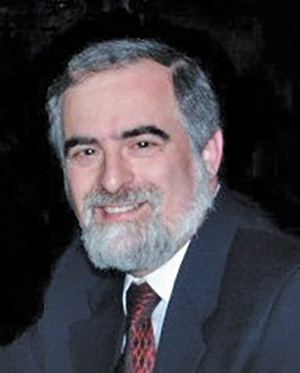
Wellness programs are a trendy thing right now. Company-sponsored exercise classes, weight-loss competitions, tobacco-cessation programs, free health screenings and the like are intended to encourage employees to eat better, lose weight and improve their overall physical condition. To encourage participation, employers often offer financial rewards, such as reduced health-insurance costs or gift cards.
Employers benefit from wellness programs, too. Healthy employees are more productive, use fewer sick days and incur lower health insurance costs, all of which improve the company’s bottom line.
Technology is another driver of the trend. “Wearables” like Fitbits can take wellness beyond the workplace or fitness center, encouraging employees to maintain healthy habits 24/7.
With benefits for both parties and technology to facilitate implementation and tracking, wellness programs seem like a no-brainer.
But do they work?
A 2018 white paper “Wealth Through Wellness” published by Healthy Capital, says the results are mixed. While employees report a greater awareness of health issues, “it is difficult to determine the impact—if any—they have had on employee well-being or the firm’s bottom line.”
A joint venture between physicians and actuaries, the Healthy Capital study finds that one of the shortcomings in wellness plans is that no one—employers or employees—has a good way of measuring the benefits of better health, particularly from a financial perspective. Believing that “money can be a powerful theme and motivator,” the paper sought ways to quantify, in dollars, the value of healthier living. For example:
A typical 45-year-old male diagnosed with chronic high blood pressure will spend $1,591 more annually out-of-pocket today than a healthy man the same age. Fortunately, the data reveals that with a few simple lifestyle adjustments, he can save an average of $3,285 annually over his lifetime, extend life expectancy by three years and reduce his pre- retirement (age 50—64) healthcare costs by $65,697. To put this into perspective, if this person invested the annual savings into a typical retirement portfolio, he could generate an additional $100,348 for retirement by age 65.
Healthy Capital makes the argument that when lifestyle changes are given a dollar value, there is a greater likelihood that behavior will change. It’s an interesting premise, because it hopes real change can come from imaginary numbers.
The $100,348 “saved” in the example is an opportunity cost calculation, i.e., what money not spent on healthcare would be worth if invested instead. Savings from reallocated opportunity costs are real, but their values are guesses based on assumptions. It doesn’t mean people who make a lifestyle change will have an additional $100,000 in a retirement account—unless there is a deliberate decision to save the costs that will not be incurred.
In real life, consumers don’t usually identify or save their recovered opportunity costs. The savings are embedded in one’s personal economy and usually spent on something else; money that wasn’t needed for a medical bill instead pays for dinner and a movie.
That said, there is some benefit from putting a numerical value on better health, even if it is imaginary. The “Wealth Through Wellness” report concluded that several simple adjustments to improve one’s physical condition, things as small as faithfully taking prescribed medications, could easily be worth $200,000 of decreased retirement expenses.
Are these numbers accurate? Who knows? But the numbers, even if they are imaginary, show that maintaining a healthy lifestyle can be a great retirement asset. Health management may be a creative wealth maximization strategy.
2018-69502 Exp. 11/20
This article was prepared by an independent third party. Material discussed is meant for general informational purposes only and is not to be construed as tax, legal, or investment advice. Although the information has been gathered from sources believed to be reliable, please note that individual situations can vary. Therefore, the information should be relied upon only when coordinated with individual professional advice.
Registered Representative and Financial Advisor of Park Avenue Securities LLC (PAS), 355 Lexington Avenue, 9 Fl., New York, NY 10017, 212-541-8800. Securities products and advisory services offered through PAS, member FINRA, SIPC. This firm is an agency of The Guardian Life Insurance Company of America® (Guardian), New York, NY. PAS is an indirect, wholly owned subsidiary of Guardian. Wealth Advisory Group LLC is not an affiliate or subsidiary of PAS or Guardian. Wealth Advisory Group LLC is not registered in any state or with the U.S. Securities and Exchange Commission as a Registered Investment Advisor. Neither Guardian, PAS, Wealth Advisory Group, their affiliates/subsidiaries, nor their representatives render tax or legal advice. Please consult your own independent CPA/accountant/tax adviser and/or your attorney for advice concerning your particular circumstances.
2019-73300 Exp. 11/20
Submitted by Elozor Preil










